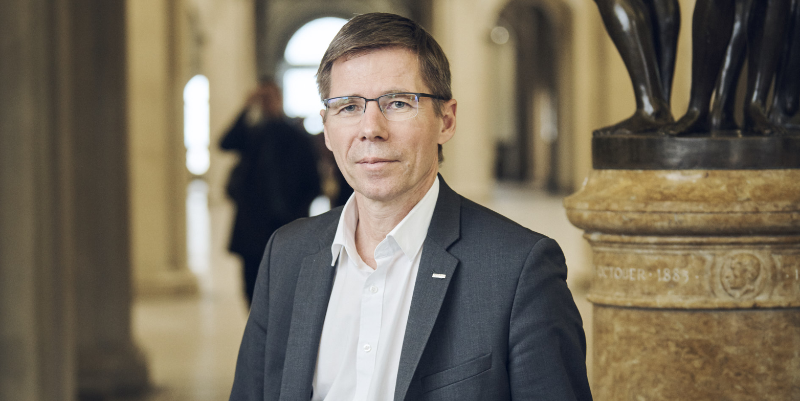“In a situation like this, everybody loses”
ETH News: Why is ETH Zurich launching such an initiative?
Today more than ever, solving global problems requires collaboration. Science wants to and should play a role in, for example, preventing future pandemics or mitigating the effects of climate change. Switzerland and the UK are scientific heavyweights that are being denied full access to Horizon Europe for political reasons. With this initiative, we want to draw attention to the fact that this state of affairs is not in Switzerland’s or Europe’s best interest. And this view is shared by universities, research institutions and scientific networks all over Europe!
Do European research institutions have an interest in Switzerland and the UK achieving full association? Surely this is now an opportunity for European universities to poach talent from Switzerland and the UK and take over the coordination of important research projects.
That’s a fair question, because science is always a competition as well. There are certainly institutions that aren’t sorry to see top Swiss and British universities excluded. In the current situation, for example, the Swedish Research Council couldn’t resist openly poaching winners of ERC grants at Swiss universities. But looking at the big picture, Europe’s research can succeed only when Switzerland and the UK – strong and proven partners – once again enjoy full association. The long list of organisations and prominent names that have signed the Stick to Science initiative reinforces this view. It is unacceptable for science to fall by the wayside because of political disagreements. In a situation like this, everybody loses.
Why is association to the European research programme so important for Switzerland? The country already has a very strong international network in research.
Switzerland has a good network, yes. ETH in particular does, too, with good and important contacts in the US and Asia. However, these contacts cannot replace our connections to the European research community. We should work on key topics such as energy, quantum computing, cybersecurity and medicine with European partners. For instance, take solutions for smart and stable grids in a CO2-free energy economy: these are something we won’t develop primarily with Asia, but rather with Europe. Furthermore, Switzerland is part of a community of shared values in Europe; this is manifested in the way we handle personal data or intellectual property, for example. And of course I’m also concerned that our researchers will now no longer be able to apply for the coveted ERC grants.
At least the Swiss State Secretariat for Education, Research, and Innovation (SERI) will be making up for the lack of funds until further notice.
We greatly appreciate SERI’s financial support in this difficult situation, but there’s one thing we shouldn’t forget: an ERC grant for researchers means much more than funding, especially for researchers at the beginning of their careers. An ERC grant opens doors and networks and is often the stepping stone to a professorship. The comparison has been made many times, but it still holds true: playing in the Champions League has a different status than winning in the national league.
It’s true that participation in Horizon Europe programmes is still open to our researchers in various fields. But with Switzerland having the status of a non-associated third country, they can no longer coordinate major projects, which makes cooperation enormously difficult and turns it into a real obstacle course.
From the EU’s point of view, isn’t it understandable that there should be consequences for the Swiss Federal Council’s breaking off negotiations?
Naturally we’re aware that policymakers have concerns other than science. But we already experienced a very difficult situation when Switzerland was temporarily excluded from Horizon in 2014. With the Europe-wide “Stick to Science” initiative launched today, we want to tell politicians to let science do its work: allow it to collaborate freely across national borders. That’s in everyone’s best interests – in Switzerland and in Europe.
